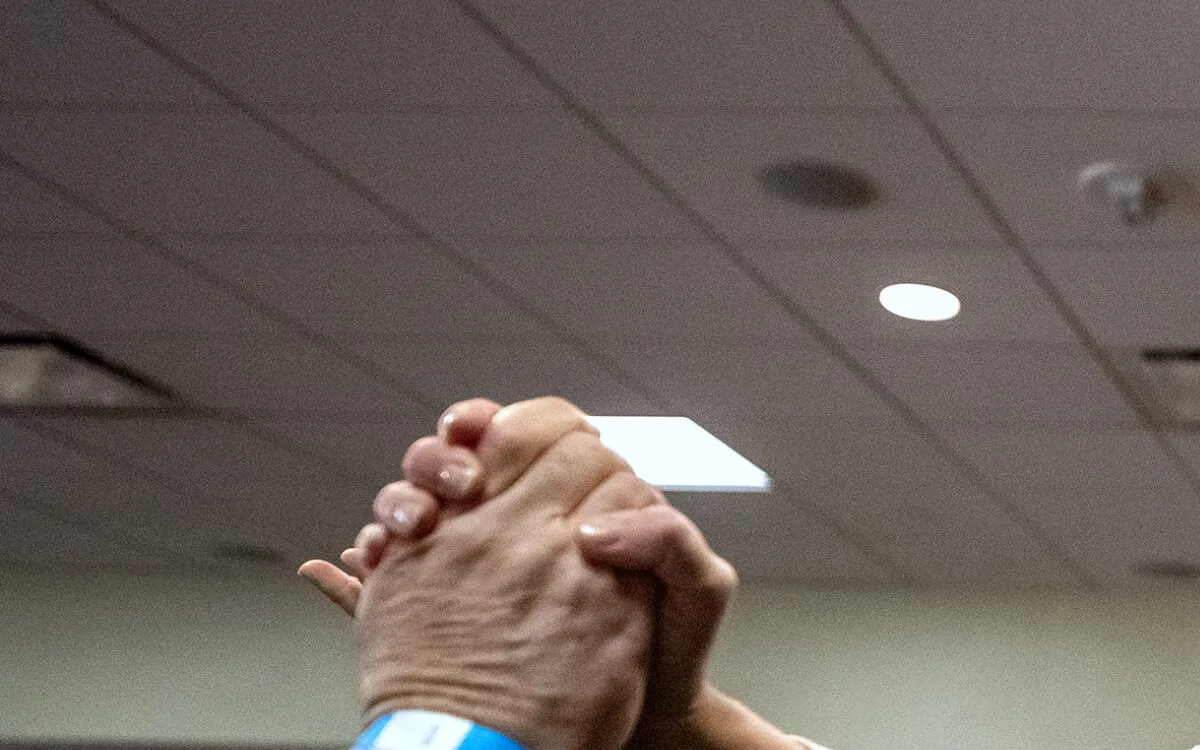
Dane County Judge Susan Crawford has successfully secured a position on the Wisconsin Supreme Court, thus preserving the liberal majority of 4-3 after a fiercely contested and highly politicized race that garnered national attention and shattered previous spending records. In this pivotal election, Crawford defeated Waukesha County Judge Brad Schimel, the former attorney general, who spent over a year attempting to rally GOP voters in what was officially a nonpartisan contest.
Ultimately, the Democratic base in Wisconsin maintained its streak of victories in judicial elections, leading to Crawford's triumph. The Associated Press announced the outcome at 9:16 p.m., although all results remain unofficial until the certification process occurs in the coming weeks.
In downtown Madison, supporters of Crawford erupted in cheers as preliminary results were revealed. Shortly after 9:30 p.m., she took the stage to a roaring crowd, revealing that Schimel had called to concede. During her victory speech, Crawford referenced the significant campaign contributions from billionaire Elon Musk, stating, “As a little girl growing up in Chippewa Falls, I never could have imagined that I’d be taking on the richest man in the world for justice in Wisconsin. And we won.”
Flanked by the liberal bloc of the court, Crawford characterized the election as a victory against an "unprecedented attack on our democracy, our fair elections, and our Supreme Court." She emphasized, “Wisconsin stood up and said loudly that justice does not have a price. Our courts are not for sale.”
Schimel, speaking at his own election night gathering in Pewaukee, expressed gratitude towards his campaign team and family. As he announced his concession, some supporters voiced their discontent, with shouts of “No!” and accusations of cheating directed at the Democratic campaign. “No, no, no, no. You gotta accept the results,” Schimel urged, acknowledging that the numbers were unfavorable and the outcome could not be reversed.
This election marked the second time within just two years that a state judicial race in Wisconsin captured national attention, but the latest contest was even more dramatic than the previous one in 2023. The unprecedented financial stakes were a significant factor; a WisPolitics tally revealed that over $104 million was spent in this race, setting a record for judicial elections in the U.S. This figure nearly doubled the $56 million spent in the 2023 Wisconsin Supreme Court race, which had previously set the national record.
Schimel received considerable support from the Republican establishment, including an endorsement from President Donald Trump and significant funding from Elon Musk. Despite these advantages, Crawford and her liberal allies effectively framed Schimel as an extension of the Trump administration, presenting herself as the more moderate and principled candidate, particularly on women's issues.
The campaign was characterized by a barrage of negative attacks from both candidates regarding each other's judicial records and personal integrity. The tone and financial magnitude of the race resembled that of a competitive U.S. Senate contest, reflecting the national implications of the election. It acted as a litmus test for the political landscape in Wisconsin and provided an early indication of how the state might respond to the influence of figures like Musk and Trump.
Messaging from both campaigns focused heavily on their records in sentencing as county judges, despite the fact that such issues are largely irrelevant to the duties of a Supreme Court justice. The court primarily addresses constitutional matters, including contentious issues such as abortion and labor disputes, and has played a significant role in redistricting cases.
The Wisconsin Supreme Court is currently poised to address challenges to the state’s pre-Civil War abortion ban, with a decision expected imminently. Throughout her campaign, Crawford refrained from commenting on the existing case but affirmed her support for a woman’s right to choose, frequently highlighting her experience representing Planned Parenthood in her legal career.
Additionally, the court may soon hear a lawsuit regarding Act 10, the controversial law enacted by former Republican Governor Scott Walker, which stripped union bargaining rights for most public sector workers. A lower court decision, authored by a colleague of Crawford's in Dane County, recently deemed the law unconstitutional. Crawford has personal ties to this law as she was a lead attorney challenging Act 10 during its initial implementation.
Crawford, who was born and raised in Chippewa Falls, has a lengthy legal career, having worked alongside Democrat Jim Doyle as a prosecutor and later as his general counsel. Prior to her election as a Dane County judge in 2018, she was a private attorney at Pines Bach, a law firm known for representing Democrats in significant cases. With her election, she will fill the seat vacated by Ann Walsh Bradley, a liberal justice who announced her retirement last year.
Endorsements for Crawford came from the liberal wing of the court, including Justices Rebecca Dallet, Jill Karofsky, and Janet Protasiewicz, as well as various labor unions and pro-choice organizations like Planned Parenthood and Emily’s List. The Wisconsin Democratic Party contributed at least $10 million to her campaign, capitalizing on state campaign finance laws that permit unlimited fundraising and spending.
As for Schimel, he also garnered substantial financial support from conservative donors, including Richard and Elizabeth Uihlein and other groups like Fair Courts America and Americans for Prosperity. This election cycle has prompted discussions about potential conflicts of interest, as both candidates navigated relationships with their significant donors without committing to recusal from cases involving state parties.
The extraordinary spending and political advertisements in this race may signal a new norm in Wisconsin, as justices will face reelection every year through 2030. Crawford's victory ensures that the liberal majority on the court will be maintained, allowing her to begin her term on August 1. Looking ahead, the next two Wisconsin Supreme Court elections in 2026 and 2027 will feature conservative justices defending their positions, potentially allowing the liberal majority that Crawford has successfully defended to persist until at least 2028 and beyond.